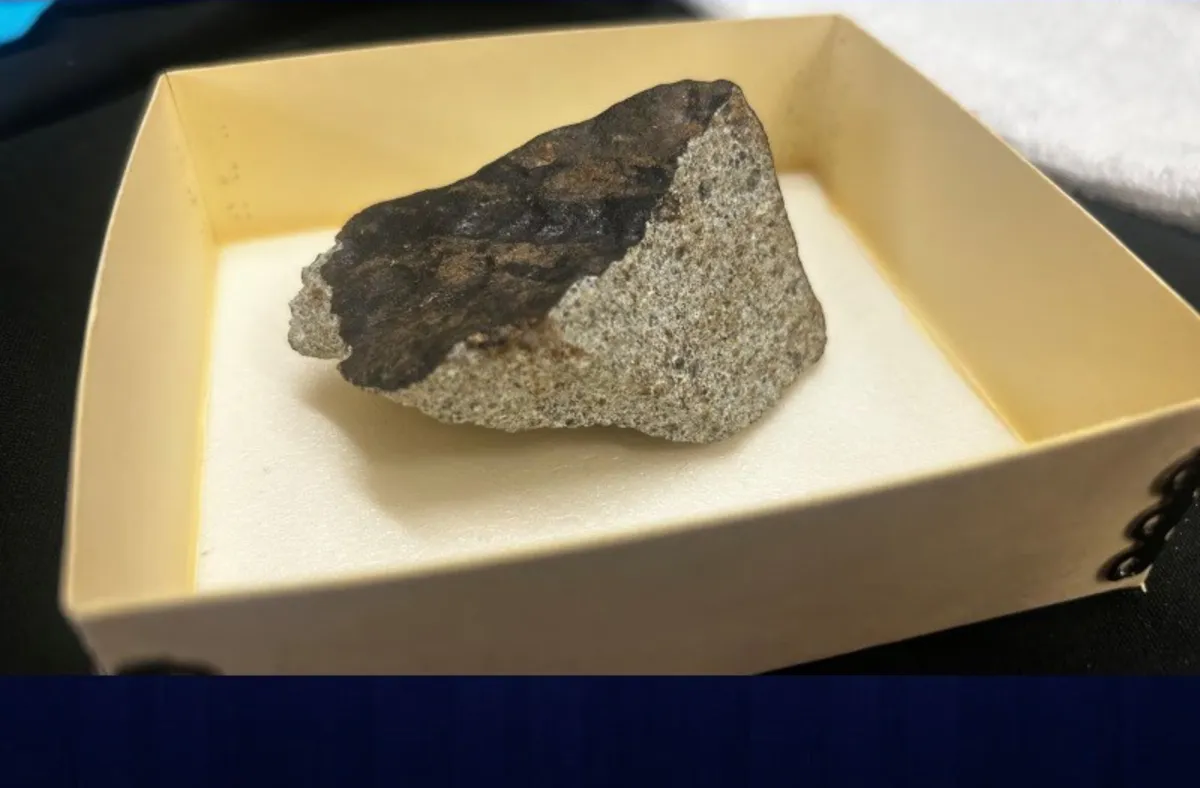
In a remarkable event that captivated residents across the South, a meteorite recently made headlines after crashing into a homeowner's roof in Georgia. This extraordinary space rock, which streaked across the sky in a fiery display on June 26, 2023, has been revealed to be older than the Earth itself, according to scientists who have meticulously analyzed its fragments.
On the day of the incident, numerous people in several Southern states reported witnessing an astonishing fireball blazing through the daylight sky. Observers described the meteorite as it hurtled towards the Earth at astonishing speeds, exceeding the speed of sound. The meteorite impacted a home in the Atlanta area, striking with such force that it created a substantial dent in the floor.
Dr. Scott Harris, a planetary geologist at the University of Georgia, took charge of the investigation. He examined 23 grams (0.8 ounces) of meteorite fragments, which were part of a larger piece that resembled a cherry tomato in size. Upon scrutinizing the fragments under powerful microscopes, Harris concluded that the meteorite originated approximately 4.56 billion years ago—making it about 20 million years older than the Earth itself.
According to Dr. Harris, this meteorite is linked to a group of asteroids located in the main asteroid belt between Mars and Jupiter. The research suggests that the meteorite is a remnant of a much larger asteroid that experienced a breakup about 470 million years ago. This fascinating connection adds to our understanding of the solar system's history and the origins of such celestial bodies.
In collaboration with colleagues from Arizona State University, Dr. Harris plans to submit their findings to the Nomenclature Committee of the Meteoritical Society. They propose naming this extraordinary space rock the McDonough Meteorite, in honor of the Georgia city where it made its dramatic descent to Earth.
The McDonough Meteorite not only serves as a fascinating scientific discovery but also as a reminder of the dynamic processes occurring in our universe. As researchers continue to explore its origins and implications, this meteorite stands as a testament to the wonders of space and the ongoing quest for knowledge about our solar system.